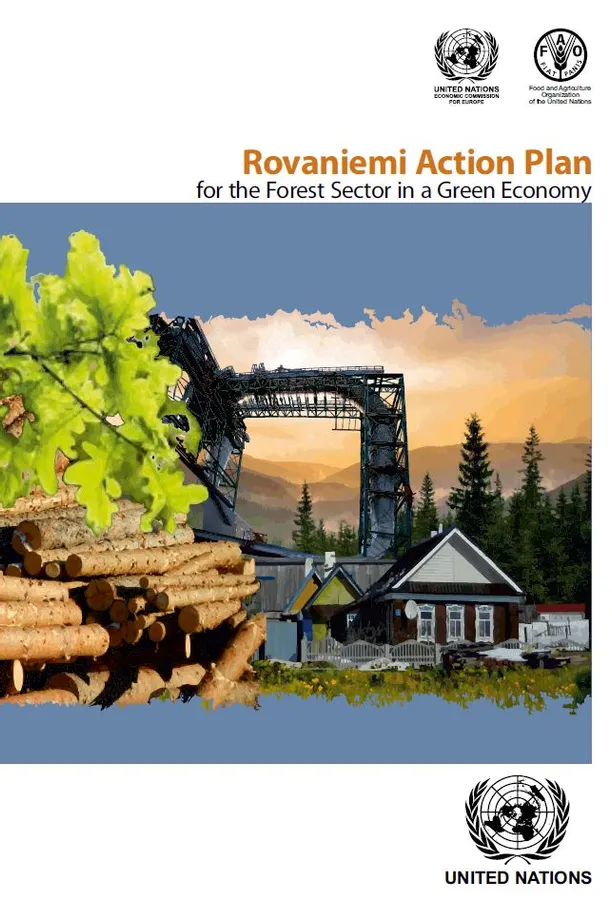Communicating benefits of forest products key to unlocking potential contribution to SDGs
20 February 2018 News
The environmental rationale for protecting forests is well known. Lesser known, but equally significant, is the role of forest products. Forest products are key to a green economy, an economy that relies on sustainable materials with a minimal environmental footprint.
This is the spirit of the Rovaniemi Action Plan, a regional blueprint to support the contribution of the forest sector to the transition to a green economy.
Approved in 2013, the Rovaniemi Action Plan remains the main framework to guide the transition to a green economy in the forest sector in the UNECE (United Nations Economic Commission for Europe) region.
In order to support countries’ efforts to harness this potential, experts from 13 countries gathered in Geneva on 13 and 14 February at a UNECE and FAO workshop to review actions undertaken by governments, international organizations and the private sector to implement the Action Plan. PEFC, the Programme for the Endorsement of Forest Certification, has been actively contributing to the Rovaniemi Action Plan since its inception.
The exchanges between different stakeholders highlighted that monitoring of the forest sector is well advanced in many countries, and emphasized the importance of data and information on sustainable forest management to support evidence-based policy-making for a healthy sector.
Many of the priorities of the action plan are under implementation, as part of national plans for forests and the forest sector, as well as through business strategies of private companies.
Promoting sustainable forest products a priority
Experts concurred that promoting the potential of sustainable forest products across sectors is a priority if forests are to make a meaningful contribution to the green economy.
"This is where PEFC comes in. The PEFC label, exclusively available on PEFC certified products, enables consumers globally to opt for products originating from sustainably managed forests," emphasized Thorsten Arndt, Head of Communications at PEFC International and member of the UNECE/FAO Teams of Specialist on Forest Policy Network.

"In fact, a recent survey revealed that labels such as the PEFC label assure consumers most that environmental considerations and sustainable development had been taken into account.”
“Not surprisingly, more than two-thirds of consumers globally agree that companies should use PEFC certification to demonstrate that the wood they are using is verified to originate from legal and sustainable sources," Mr. Arndt concluded.
Forests hold great promise
“As foresters, we know the great promise forests hold for a sustainable future, and how forests products can support the transition to a green economy and contribute to more sustainable consumption and production patterns”, highlighted Marta Gaworska, Chair of the UNECE Committee on Forests and the Forest Industry (COFFI) and the UNECE/FAO Forest Policy Network.
“What we need now is to make sure this message reaches other sectors and to the public at large. This is one of the main priorities of our work at the national and international levels.”
